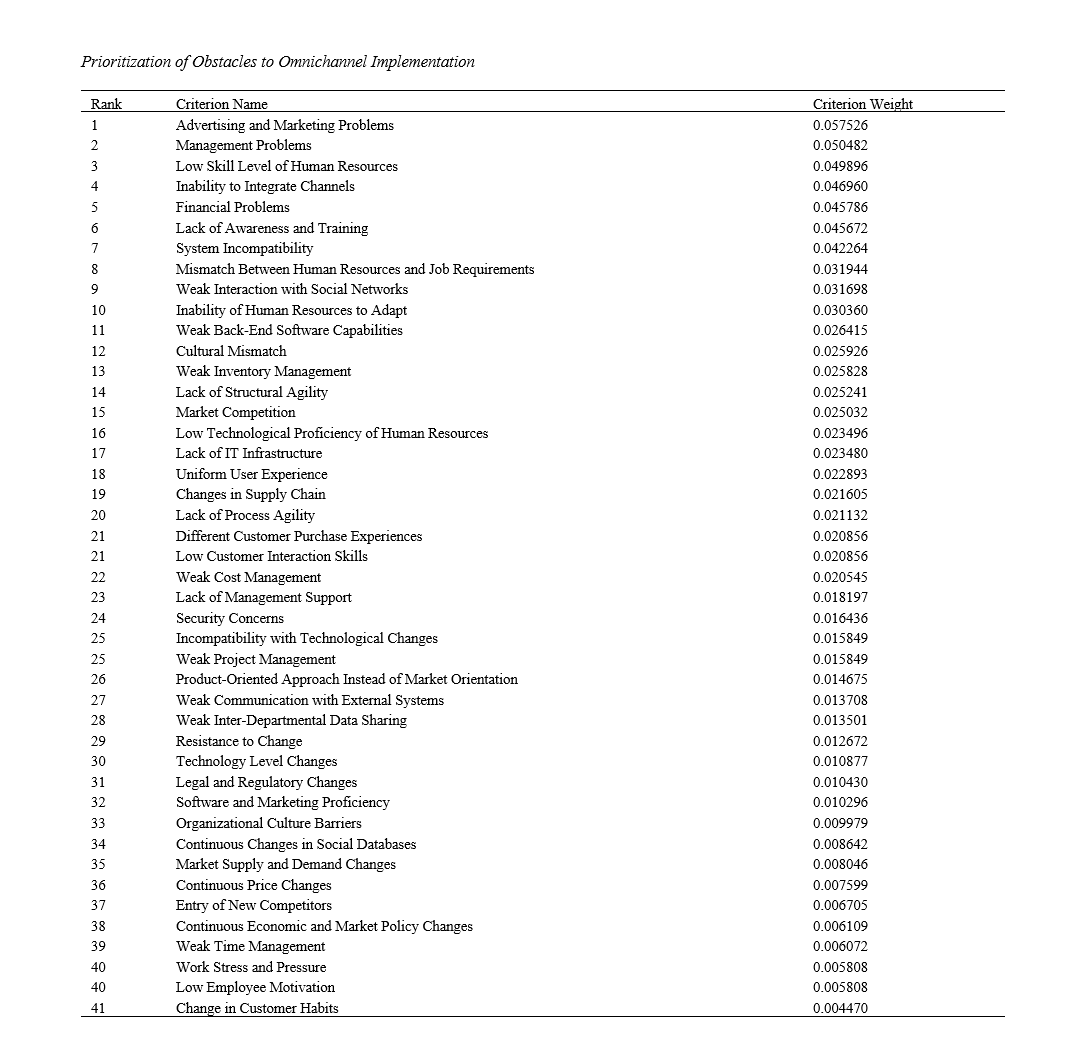Identifying Obstacles to Omnichannel Implementation in the Export Sector (Case Study: Food Industries)
Keywords:
Obstacles to Implementation, Omnichannel, Food Industry ExportsAbstract
Objective: The primary aim of this research is to identify the components and obstacles to implementing omnichannel in the export sector.
Methodology: The research approach is both qualitative and quantitative, and by nature, it is exploratory and descriptive. The statistical population of this study includes experts in the export sector of the food industry. The snowball sampling method has been used in this research. Ultimately, the sample size was determined to be 12 individuals at the point of theoretical saturation. Interviews were conducted to identify the obstacles in the research. The validity of the codes was evaluated through CVR (Content Validity Ratio). The data analysis method used in this research is thematic analysis. For the prioritization section, the quantitative method of hierarchical analysis was used. In this section, a pairwise comparison questionnaire was utilized to examine the ranking of the studied indicators.
Findings: The results of this investigation identified three main obstacles categorized as structural, contextual, and behavioral. Within each of these obstacles, sub-components were identified as obstacles, totaling 46 items. It is ultimately recommended that food industries evaluate and study the identified obstacles of this research for the implementation of omnichannel. Additionally, these obstacles have been prioritized using the hierarchical analysis method.
Conclusion: The findings of the research indicated that the implementation of omnichannel in the export of food industries consistently faces obstacles, some of which are related to the organizational structure of exporting companies, some are within the human and behavioral dimensions of the workforce, and some are influenced by environmental factors. From this perspective, it can be stated that this research, with a comprehensive understanding of these obstacles, has paved the way for better implementation of omnichannel in the export sector of the food industries.
Downloads

Downloads
Additional Files
Published
Submitted
Revised
Accepted
Issue
Section
License
Copyright (c) 2024 Seyed Alireza Saleh (Author); Manouchehr Ansari (Corresponding Author); Seyed Pendar Toufighi (Author)

This work is licensed under a Creative Commons Attribution-NonCommercial 4.0 International License.






















